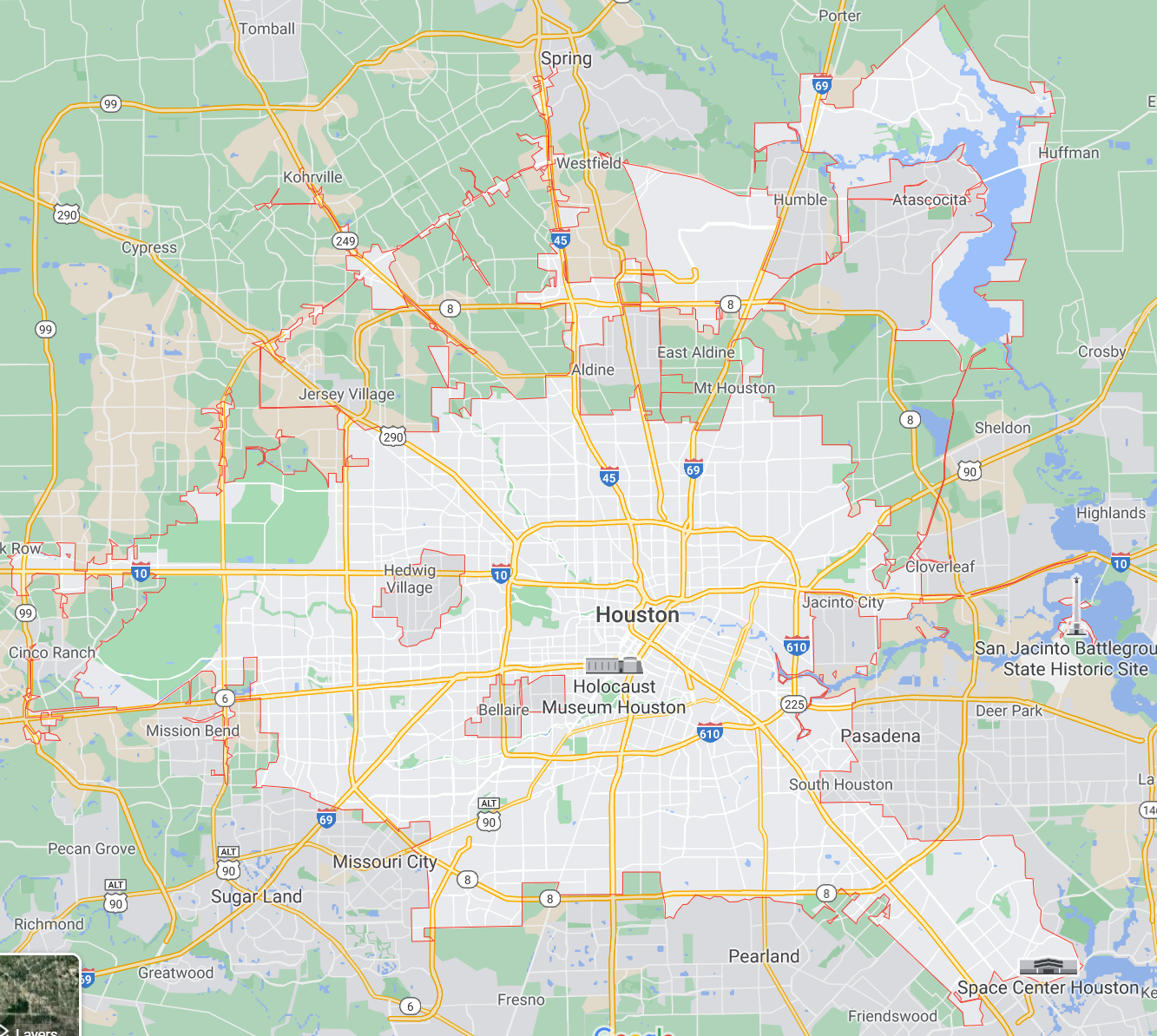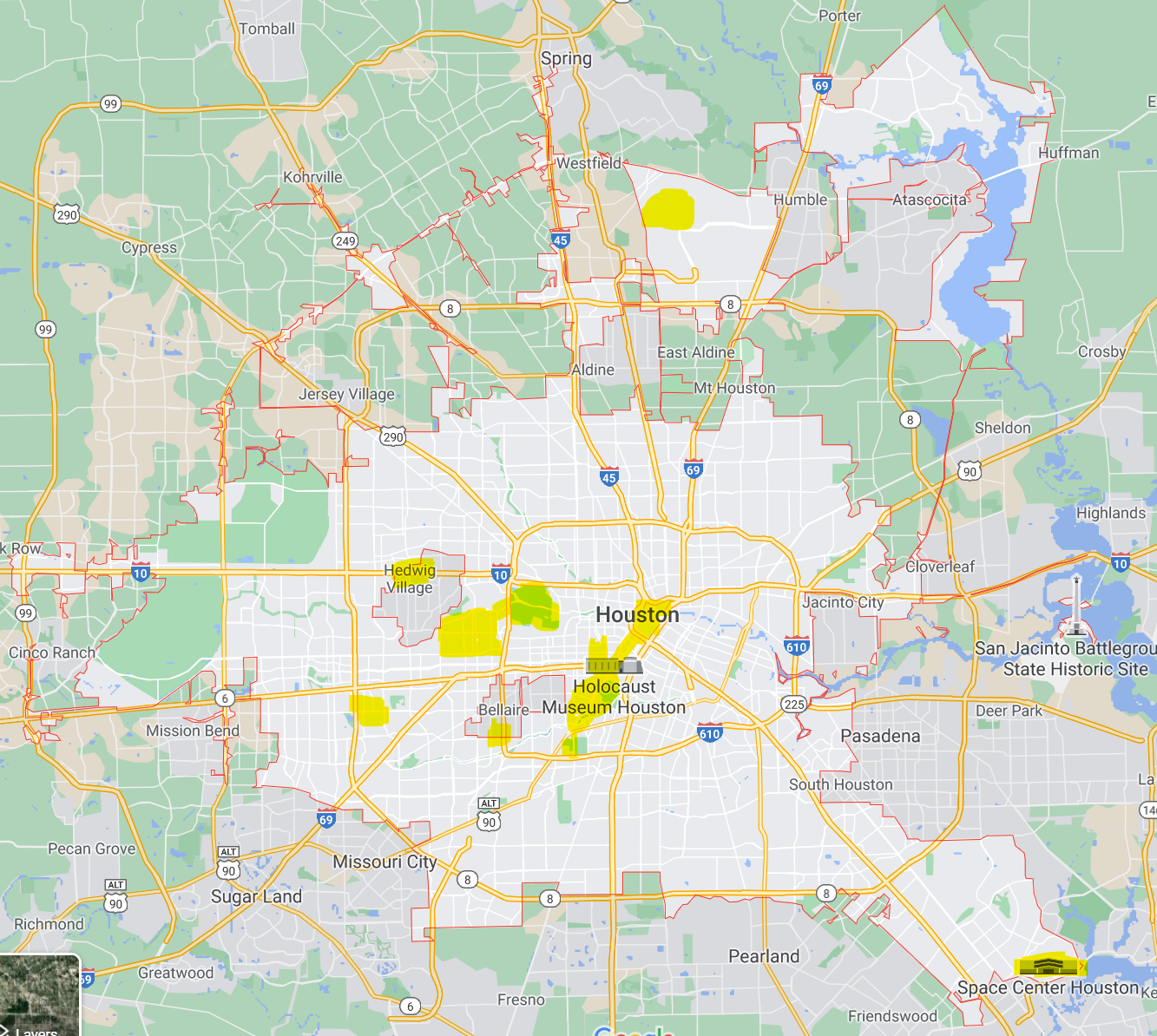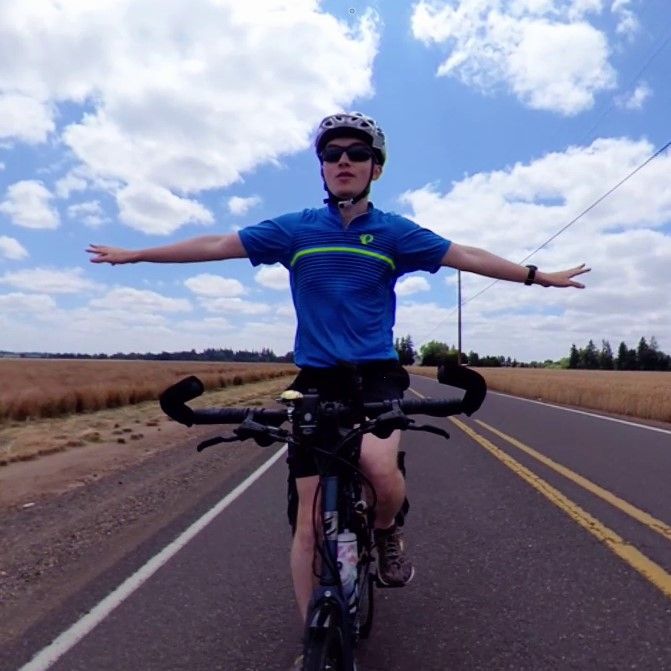Tangent: Houston
Preface: this is all talking about myself, I'm not attemping to generalize my own experience to everyone around me.
Recently I've been writing my little series of posts on my trip to Chicago last week, thinking about the places I've been, when it struck me that I don't feel any sort of strong connection to Houston, the place I was born and lived my first 22 years. Even after spending such a huge portion of my life there, upon reflection I feel far less attached to it than I expected. Certainly if I didn't have family here I'd have no desire to return. So I've been wondering, why is that? Isn't it normal to hold onto some fondness for the place you're raised? (genuine question, I have no idea because I haven't conducted a survey.) In an attempt to rectify this distressing internal inconsistency, this post will go over a possibly not-so-obvious reason.
First, the obvious stuff out of the way: Houston's a big, flat place that somehow managed to become the fourth most-populous city in America without gaining any notable attractions along the way. Other than NASA, which is just barely in Houston. Of course it helps in counting population when your city borders are 50 miles across. It would be tidy to say that the city's blandness explains my feeling, but that's not quite adequate. After all what looks dull and uninspiring to one person could be comforting and homely to the person who grew up there.
One way of putting it is that for me, I don't think Houston is my home. Instead, my home happens to be in Houston.
Here, I'll claim that the same tool that enabled the city to sprawl so far is the reason my connection to it is so shallow. Welcome to the paradise of the personal automobile!
Car Dominos
People close to me have probably figured out that I'm the kind of person who regards car culture as the Root of All Evil in the world (if not world then at least the U.S.). But I haven't always held this view! I used to love going to auto shows as a kid and perusing catologs of cars, imagining which one I'd get as my first (for a while I really liked the idea of a Mazda). As a kid (pre-internet, can you believe it???) I would pick up the Houston Chronicle after my dad had finished reading and flip straight to the used car classifieds and scan through the lists of mileages, options, and prices. I could name the make and model of almost every car on the road at a glance (without reading). I'm trying to express that I understand the appeal of a car-dominated lifestyle and that the words I'm writing here are in spite of that attraction.
I could ramble on this topic all day... but to get to the point, why do I think car dependency is the reason I don't feel any attachment to the city I grew up in?
As a starting point, what is the foundation of a personal connection with a place? Strong Towns has an article on the topic, but for me it's having experiences like getting takeout and eating it in the park, people-watching at the local coffee shop, going for a run through the neighborhood, or biking through new areas. Unfortunately Houston's a miserable place for most of these activities. Correction: it has little to do with "fortune" because this is the result of conscious deliberate decisions over the years. Here, sidewalks end abruptly, parking lots stretch for miles across, and high-speed street traffic divides communities.

Map of Houston, the city of highways
How did this happen? While I can't speak to the specific choices that first started the cycle, I can observe that much of it can be explained by what I see as the Fundamental Problem of Vehicular Traffic: Induced Demand. Simply put, when car traffic reaches road capacity, well-intentioned transportation planners at some point made the seemingly obvious choice of adding another lane. Surely, more space means traffic is fixed?
From then on, a cascade of consequences follow: with more car lanes, more people will decide to drive. When more people drive, more people need to park. With more parking requirements, more parking lots will be built. With wider roads and more parking lots, destinations necessarily spread farther apart and distances are harder to cover on foot. Therefore more people must drive, and the cycle perpetuates.
This post is not about it, but of course there are plenty of other negative externalities involved as side effects: pollution leading to lung diseases, asphalt and fewer green spaces leading to greater urban heat island effect, and more vehicle collisions and deaths despite cars becoming safer for their occupants (Houston #1!).
Drive-over Country
There's plenty of evidence that smells are potent triggers for memory. While I can't say I'm an expert in brain science, I can say that sight, sound, smell, touch, and taste are our windows to the world around us, and engaging more senses absolutely leaves stronger memories. In a car, I'm utterly isolated from everything that connects me to my environment. Even sight: my attention is constantly on the road ahead because I'm operating a multi-ton metal murder machine. I go from place to place but the space between is completely blank in my memory.

Highlighted: places I'm familiar with after 22 years here
Analagous to the idea of flyover states, most of Houston to me is drive-over country, areas on the map that simply exist between where I am and where I need to be. Even though they're not, they might as well be utterly empty given how much they've engaged my senses.
I know the points I'm making are very personal in nature, but I hope it helped explain how I form connections with places and why I don't feel a bond with the place I spent most of my life.
Oh, a parting thought: stop looking at your damn phone while behind the wheel!

View Comments